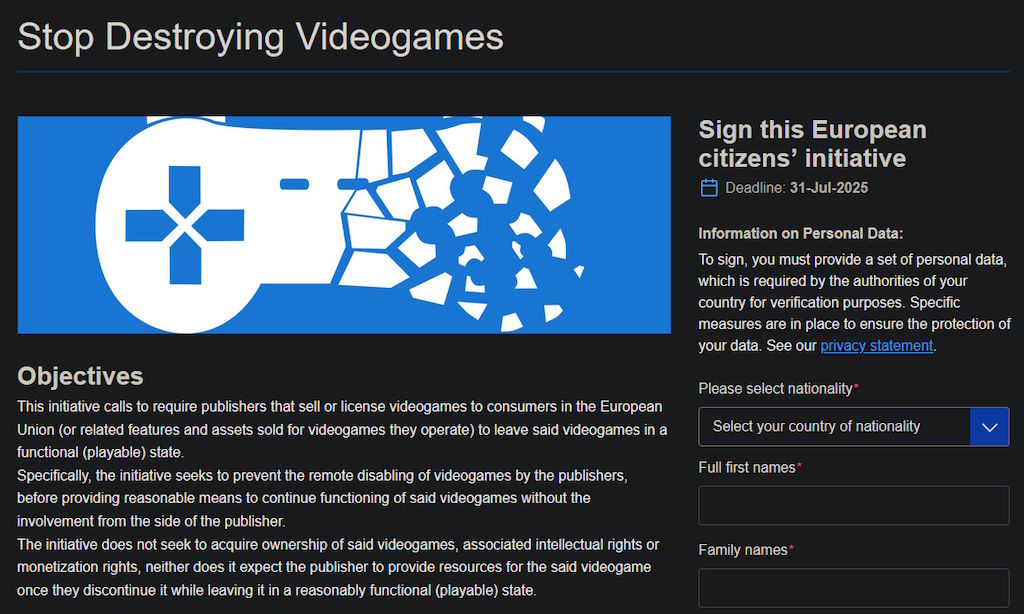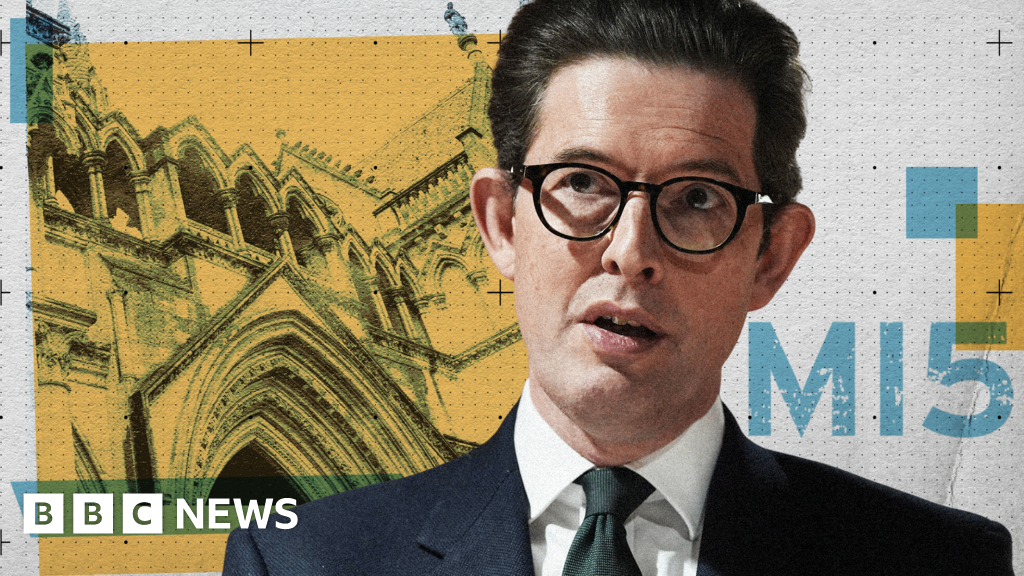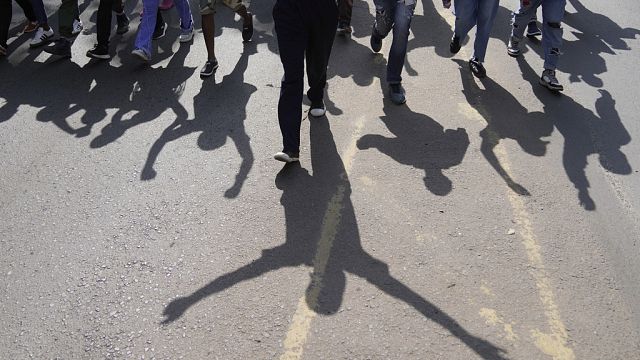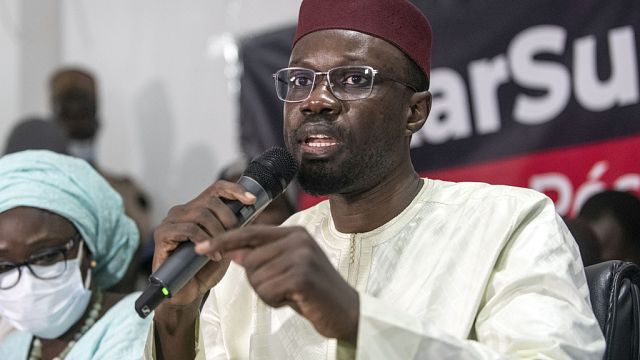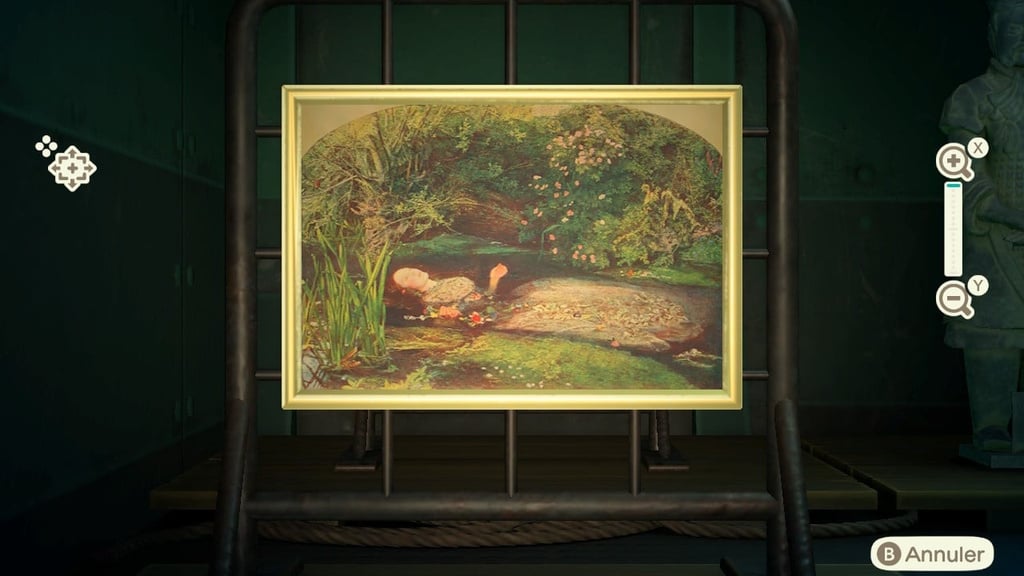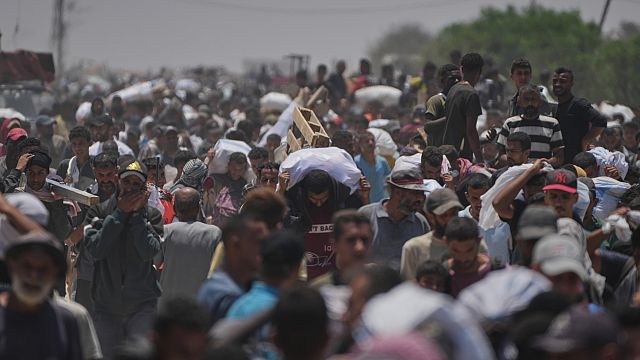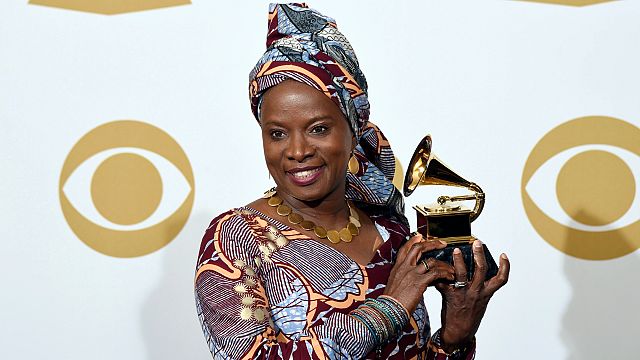Albert Ojwang Was Killed in Police Custody. Kenyans Are Not About to Let It Go.

At first, there were only small groups of mourners milling about as a few dozen men hacked away at the hardened earth.
But there were signs of what was to come. The meat from at least 10 slaughtered bulls — enough to feed an army — sizzled over open fires. Enormous tents had been erected over a nearby field, with rows of seating beneath.
Then, as the sun climbed and the men crawled out of the grave they had dug, the crowds arrived en masse. Thousands poured into the rural Kenyan village. Some had pinned a man’s portrait to their blouses. Others wore matching shirts emblazoned with a slogan: “Rest in Power, Albert.”
The immense turnout for the funeral of Albert Ojwang, a Kenyan blogger who died in police custody last month, was the latest indication of roiling discontent in Kenya over what many there view as a corrupt and unaccountable system of law enforcement. Mr. Ojwang’s death thrust the country’s brutal policing tactics into the spotlight and fueled a wave of anti-government protests that exploded across the nation, leading to the deaths of more than 16 people.
At the funeral in Kakoth Village, held a short walk from Mr. Ojwang’s family home, religious leaders, politicians and activists spoke for hours from a raised stage under a winter sun. The crowd joined in singing hymns, and energetic speakers roused young men and women in chants.
Mourners lined up to shake the hands of Mr. Ojwang’s family, who sat tearfully at the front of the crowd.
When it was time to bury Mr. Ojwang, young men carried his casket from the open field to the grave. The casket rested in the soil, draped in the flag of his country and that of his favorite soccer team.
Nevnina Onyango Omondi, Mr. Ojwang’s widow, sat with their 3-year-old son in her lap. The night before, as the family was preparing for the funeral, she had smiled at the thought of her husband’s defiant anti-corruption writing. She encouraged unity against police brutality as she said Mr. Ojwang would have wanted. Even as he was being arrested, Ms. Omondi said, Mr. Ojwang was scared but full of hope.
His last words to her as the police ushered him away, Ms. Omondi recalled, were “I love you” and “See you soon.”
But he would never see her again. Two days later, Mr. Ojwang’s body lay in a morgue in the country’s capital, Nairobi, over 140 miles away from the family’s home. An autopsy would later reveal that his wounds were consistent with assault.
Odhiambo Ojiro, an activist who traveled to the funeral from Nairobi, said Mr. Ojwang’s death was a call to action for Kenya’s young people.
“Ojwang’s death is a message sent by the political class to the people: ‘If you speak, we will take you. We will abduct you. We will kill you,’” he said, adding, “You cannot speak to the young people through the bullet.”
Mr. Ojwang, 31, was taken from the family home on June 6 by men who identified themselves as police officers, before he was briefly held at a local precinct and then transported to Nairobi, his father, Meshack Ojwang, said.
Kenya’s police chief, Douglas Kanja, said in June that before Mr. Ojwang’s arrest, the authorities had initiated a probe into his online posts, based on a top official’s complaint. The official, Eliud Lagat, the deputy inspector general of Kenya’s police, stepped aside from his office pending the results of an investigation into Mr. Ojwang’s death, local news media reported.
The elder Mr. Ojwang said he had been shocked upon learning that his son had been taken to the capital. He rushed to contact a lawyer he said, and then traveled overnight in the hope of securing his son’s freedom.
Instead, on Sunday, June 8, he was taken to identify his son’s lifeless body in the morgue. Haltingly, he described seeing dried blood caked under Albert’s mouth and nose, and dark bruising around his neck.
“I was brokenhearted,” he said. “I could not see the future.” He later added, “Even now as we talk, I see no future.”
The police initially said that Mr. Ojwang had died of self-inflicted wounds, but a later examination of his body revealed otherwise. A copy of the autopsy report, viewed by The New York Times, noted head trauma, neck compression and bruises and lacerations across the body.
On June 24, Kenya’s prosecuting authority charged six men, including three police officers, with Mr. Ojwang’s murder.
Kenya’s police have a history of extrajudicial killings, excessive force and brutality. One human rights group has documented hundreds of extrajudicial killings over the last six years.
After demonstrations against a controversial tax plan last year, dozens of people, including activists, medical workers and social media influencers, were abducted, interrogated and tortured.
The Kenyan police have repeatedly denied targeting protesters during last year’s unrest. President William Ruto of Kenya has said that all those who were abducted or who disappeared have been returned to their families. But the public is not convinced.
Anger in the area has risen to the point that the local police station, where Mr. Ojwang was briefly held before his transfer to Nairobi, was burned to the ground on Thursday afternoon. Police officers abandoned the station’s housing quarters; only scrap metal and the charred ruins of the small precinct remained.
Mr. Ojwang’s family was wary when asked before the funeral whether they thought that such action, and the events of the last month, would lead to lasting change in Kenya. Stroking her toddler’s hair, Ms. Omondi said she was unsure if those truly responsible for her husband’s death would ever be held accountable.
“I think the case of Albert will determine if this country is just or not,” she said with a sigh.
Wycliffe Odera contributed reporting.
What's Your Reaction?
 Like
0
Like
0
 Dislike
0
Dislike
0
 Love
0
Love
0
 Funny
0
Funny
0
 Angry
0
Angry
0
 Sad
0
Sad
0
 Wow
0
Wow
0
